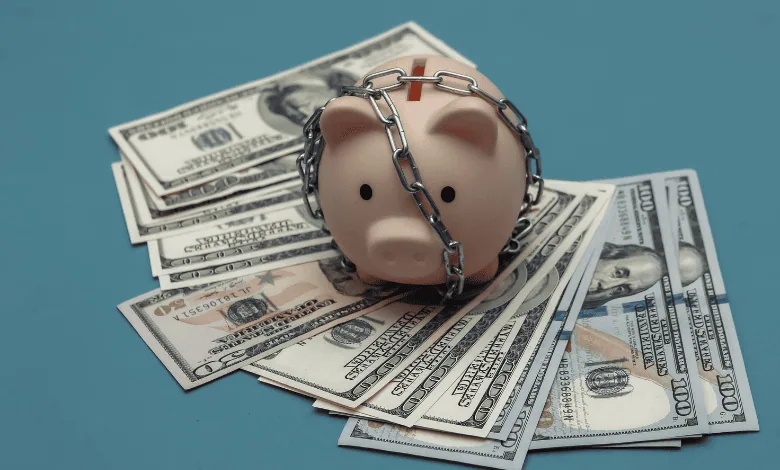The Frugal Homeowner’s Guide to Reducing Expenses

Owning a home is a huge financial accomplishment, but it also comes with a variety of financial challenges. Keeping your expenses at a manageable level will help you stick to your budget and reach your saving goals more quickly. Here are six ways to reduce your expenses as a homeowner.
1. Reduce Your Fixed Monthly Payments
As a homeowner, there are certain payments you have to make monthly — namely, your mortgage and your homeowner’s insurance. While both of these payments are essential, there are ways to lower them. The first step is to shop around for a more affordable homeowners insurance quote. Insurance prices can vary significantly between providers, so it’s worth shopping around to find the best value.
If you’ve already been a homeowner for a while, you may also be able to refinance your mortgage. This can help you get a lower interest rate, which reduces the amount you pay overall. This solution is best for those who have significantly improved their credit scores since they initially bought their home. This approach can also be helpful for those who bought their home when interest rates were at historic highs.
2. Go Energy-Efficient
Utility bills are another major expense for homeowners. Switching to energy-efficient systems can help you reduce your monthly utility bills and reduce your impact on the planet as well. One way to do this is to switch to energy-efficient appliances. These appliances use less electricity and water to reduce your monthly bills. You can also install a smart home system, which can automatically adjust your thermostat and lighting to save energy.
These upgrades will require some investment up front, but they can result in serious savings long-term. Some cities and states offer tax breaks for energy-efficient appliances to help you offset the cost. Look for applicable tax breaks to help you cut your expenses even further.
3. Up Your DIY Game
Some of the biggest responsibilities of being a homeowner are repairs and maintenance. There’s no landlord to call when things break — you’ll need to fix and pay for things all on your own. Learning some simple DIY skills can be incredibly helpful in this situation. Instead of relying on expensive repair services, you can get the job done yourself.
If you’re not naturally handy, learning how to make these repairs can be challenging. However, there are plenty of tutorials online to help you get started. Learning these skills is a great way to save money and build your confidence around the house.
4. Consolidate Your Debt
If you have credit card debt that you’re struggling to pay off, this can make it difficult to reach your financial goals. Interest adds up over time, preventing you from fully paying off what you owe. This can be especially difficult if your debt comes from multiple credit cards and loans all with their own interest rates.
Consolidating your debt can be one way to get out from underneath a pile of debt. It involves taking out a new loan—ideally at a lower interest rate—and paying off everything else with that money. This can make it easier to pay off debt because you’d only have one payment to manage. By paying off your debt more quickly, you’ll reduce the amount you spend each month and interest over time. You can also focus on growing your savings.
5. Assess Your Subscriptions
Monthly subscriptions are another common expense that can eat away at your budget if you’re not careful. While you don’t need to cut all subscriptions out of your life, it’s helpful to determine which ones you need and which ones you can live without.
Start by looking for deals on your internet and cell phone bills. You can often negotiate with your provider to get a lower rate, especially if they’re facing high levels of competition in your area. Next, look at your entertainment subscriptions, such as streaming services, video game passes, and magazines. See if you can consolidate down to just a few subscriptions you love, rather than dozens of subscriptions that you only use occasionally.
6. Shop Smart
When you’re on a budget, you need a plan to help keep your grocery and home essential costs low. A little bit of strategizing in advance can help you lower your weekly shopping bill, without feeling like you’re depriving yourself.
Start by looking for ways to buy essentials in bulk so you get a lower cost per unit. This can also help you cut back on trips to the store, therefore reducing the amount you spend on transportation costs. When possible, use online comparison tools to find the cheapest options before heading to the store.
It’s also helpful to create a weekly meal plan before heading to the store. This can prevent you from buying more than you need, and it also reduces food waste. Look for recipes that use spices and dried goods you already have so you don’t need to spend extra money.
Final Thoughts
Taking these steps will help prevent your expenses from spiraling out of control. Although being a homeowner can be expensive, sticking to a budget will help you stay on top of your financial goals. Over time, you’ll learn how to identify new ways to save money and help avoid unnecessary purchases.
For more insights, don’t forget to check out!






